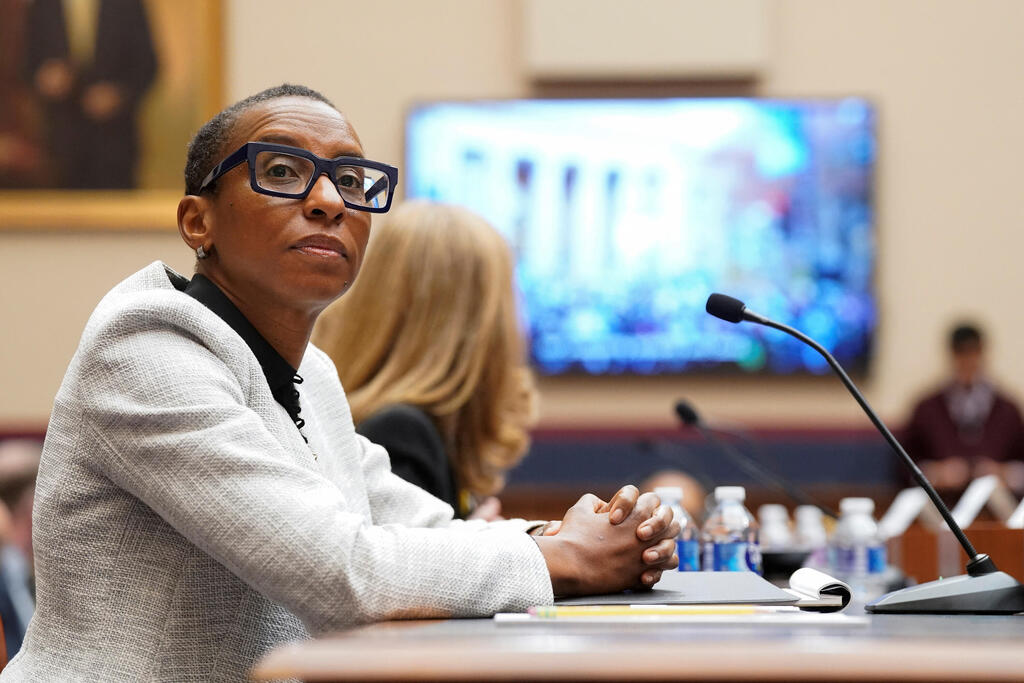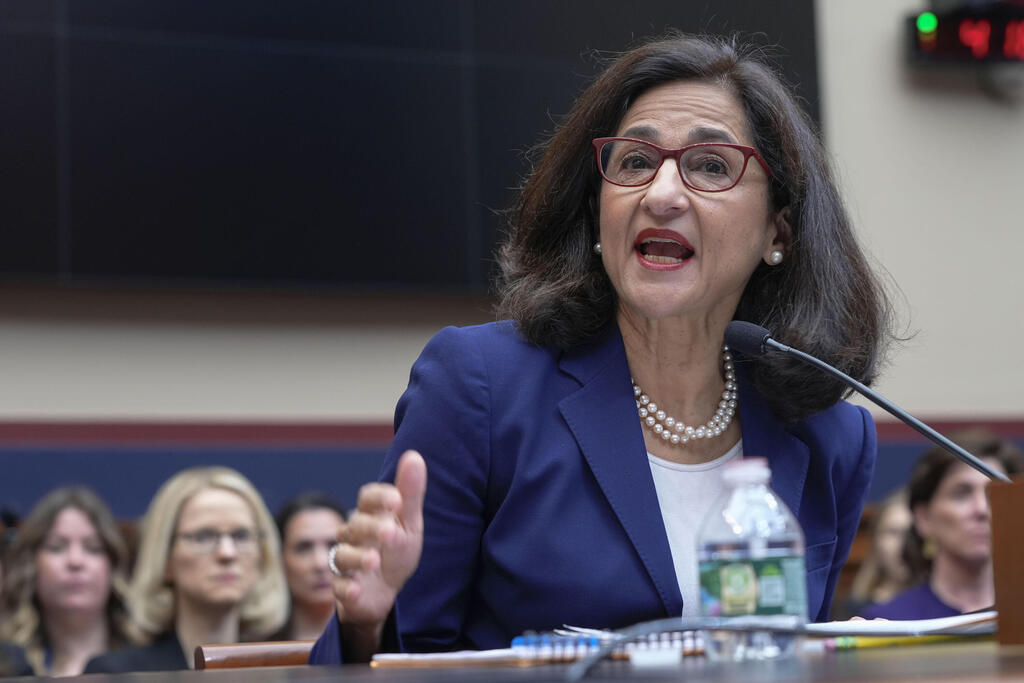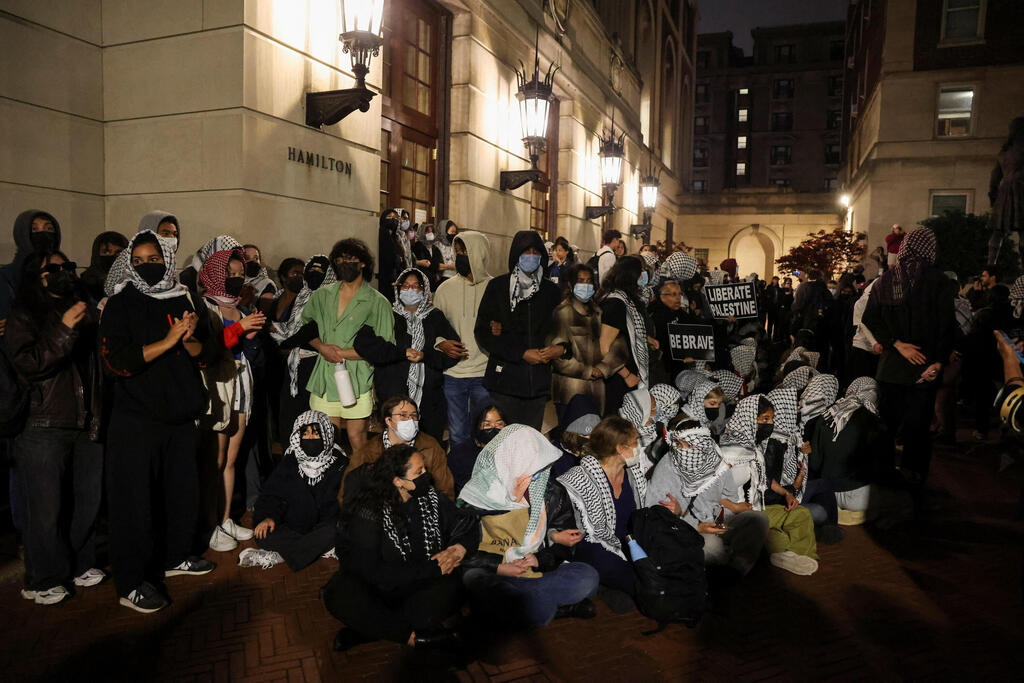Getting your Trinity Audio player ready...
A new U.S. House of Representatives report reveals major lapses by leading American universities in addressing antisemitism and anti-Zionism on campus, presenting internal discussions on the issue for the first time.
The 300-page report, compiled from over 400,000 documents, includes transcribed testimonies, document requests and subpoenaed statements. The House Education Committee noted that the incidents investigated serve as “evidence of a broader environment on these campuses that is hostile to Jewish students,” violating the Civil Rights Act.
Pro-Palestinian protests at Columbia University
(Video: NYPD)
Harvard’s response to October 7 protests
The report highlights Harvard University’s handling of protests after October 7, showing that the administration initially drafted a statement condemning Hamas and expressing sympathy for hostages. However, then-president Claudine Gay and current president Alan Garber, who was then provost, requested the statement be softened, removing key references to hostages.
Internal communications show Harvard’s leadership resisted stronger condemnation of Hamas, citing the “complex” and “deeply divided” nature of the issue.
Harvard Medical School Dean Dr. George Q. Daley, for instance, opposed using the word “violent” to describe Hamas’ attack, suggesting it might imply blame, preferring instead to “express horror” over the ongoing violence, referencing IDF actions in Gaza.
Garber, though initially opposed, ultimately agreed with Gay’s request amid concerns of faculty backlash, writing in an internal email that the stance would be “crossing a line for many members of our community.”
Additionally, current Harvard provost John Manning opposed including a passage on the toll hostage situations had on Harvard’s community, a draft that initially read, “The violence hits all too close to home for many at Harvard. Some members of our community have lost family members and friends; some have been unable to reach loved ones, and others fear that their loved ones may have been taken hostage.”
This section was removed after multiple professors concurred with Manning that mentioning hostages without balancing reference to Palestinian casualties would be inappropriate.
Following public backlash over the muted statement, Harvard Corporation Board member Penny Pritzker wrote to Gay, calling the response “massively inappropriate at the time and insufficient.” Pritzker urged Gay to denounce the use of the slogan “From the River to the Sea” on campus, explaining it as “clearly an anti Semitic sign which calls for the annihilation of the Jewish state and Jews” and further added, “why we would tolerate that and not signage calling for Lynchings by the KKK.”
Garber responded that the issue was “not as simple as some of our friends would have it,” and Gay advised Pritzker not to label the phrase antisemitic publicly, suggesting it might “prompt the question of what we're doing about it” Congress, notably, recently passed a resolution defining the phrase as antisemitic.
The report further noted that students involved in disruptive protests on campus were not disciplined, a decision made consciously by the relevant committees, according to internal records.
During testimony, Pritzker said that the Harvard Corporation found “uneven enforcement” of rules around campus protests, an issue she called “unacceptable” and still under review.
Columbia University's handling of antisemitism
A report has spotlighted Columbia University’s approach to issues of antisemitism and pro-Palestinian activism on campus, revealing internal communications and decisions among senior leadership.
According to the report, then-president Minouche Shafik communicated with Senate Majority Leader Chuck Schumer, who reportedly advised her that “universities' political problems are really only among Republicans” and suggested the “best strategy is to keep heads down" and avoid meeting with Republicans.
Additionally, Columbia Board Chair David Greenwald and Trustee Jonathan Lavine expressed hope in private communications for a Democratic majority in Congress, anticipating it would halt further investigations into universities.
In another internal exchange, Columbia Trustee Chair Claire Shipman dismissed Congressional criticism over campus antisemitism as “capital [sic] hill nonsense” and pushed to reinstate anti-Israel groups suspended by the university, proposing events with anti-Israel professors to foster dialogue.
Meanwhile, a senior figure in Columbia’s University Senate, responsible for coordinating with university leadership, was found to have supported pro-Palestinian demonstrators and suppressed pro-Israel voices.
Although Columbia ultimately did not reach an agreement with leaders of an on-campus pro-Palestinian encampment, internal documents revealed potential concessions were considered. These included options to divest from Israeli-linked businesses, establish a joint program with a West Bank university, offer scholarships to Palestinian students and provide lenient disciplinary action for protest participants, as well as reactivating anti-Zionist student groups.
The report also covered the case of an Israeli student who sprayed "skunk spray" at a pro-Palestinian protest on campus. Columbia suspended the student, claiming he used an illegal chemical agent, but later agreed to pay him $395,000 in damages after confirming the spray was legally available for purchase.
Further, the report criticized Shafik for ignoring complaints of discrimination from students in Columbia’s joint degree program with Tel Aviv University. The report notes that Shafik appeared to downplay the partnership, with a post celebrating the program's first graduating class removed from Columbia’s social media channels within hours.
Overlooking calls to murder Israelis
At the University of Pennsylvania, former Board Chair Scott Bok reportedly advised then-President Liz Magill to disregard pressure over the institution's response to antisemitism, dismissing political criticism as coming from voices “easily purchased.”
The report also alleges that UPenn leadership coordinated with a local media outlet to secure favorable coverage of Magill’s congressional testimony, portraying legislators’ questions as “bullying and grandstanding.”
At UCLA, the report details instructions given to campus police not to intervene as protesters set up a pro-Palestinian encampment on campus. School leaders allegedly refrained from intervention and even issued misleading communications to the university community about the encampment.
At Rutgers University, a student who encouraged others to harm an Israeli peer was allowed to remain on campus during disciplinary proceedings and ultimately faced only a one-semester suspension.
Meanwhile, several Jewish students received disciplinary action for publicly speaking out against antisemitism and filing formal complaints with authorities.
The report also mentions a senior business professor at Northwestern University, Nour Kteily, who, during negotiations with a pro-Palestinian campus group, reportedly expressed hope for “amazing wins” for the student protesters.
Kteily, part of the administration’s negotiating team with the protesters and a member of Northwestern’s newly established anti-antisemitism task force, had previously criticized the need for such a task force. During talks, he reportedly proposed a campus boycott of Sabra products, made by Israeli food manufacturer Strauss Group.
Get the Ynetnews app on your smartphone:








